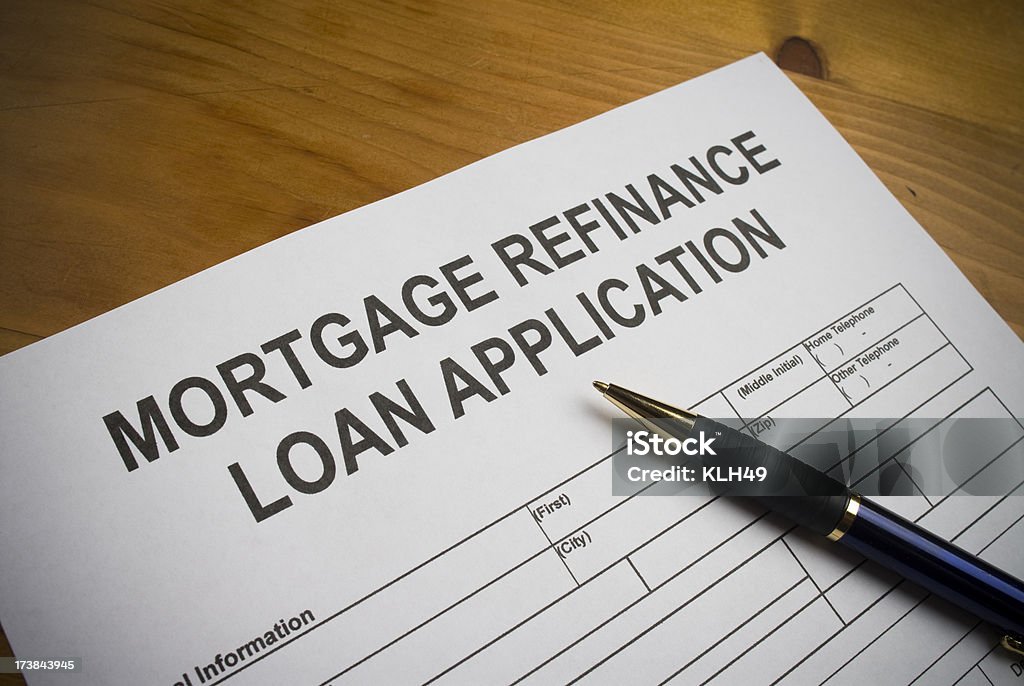5 Essential Documents for Refinancing Your Mortgage

Refinancing your mortgage can be a strategic financial move, aimed at lowering your interest rate, reducing monthly payments, or shortening your loan term. However, to successfully refinance your mortgage, you'll need to provide several key documents. Here's a comprehensive look at the five essential documents you should prepare:
The Application Form


Your journey to refinancing begins with filling out an application form. This document will capture all the necessary personal and financial information that lenders will assess:
- Name and contact details
- Employment history
- Current financial status (income, debts, assets)
Proof of Income


Lenders need to verify your income to determine your loan eligibility and repayment ability. Here are some typical proofs:
- Recent pay stubs (usually covering the last two months)
- W-2 forms from the past two years
- If self-employed, tax returns and profit-and-loss statements
Bank Statements


To verify your financial stability and savings, lenders require:
- The last two to three months’ bank statements for all accounts
- Investment account statements if applicable
- Loan or line of credit balances
💡 Note: Ensure your statements are free from any overdrafts or bounced checks, as these can negatively impact your refinancing.
Credit Report


While lenders might pull your credit report directly, they may ask for:
- A recent credit report from all three major credit bureaus
- Documentation for any recent credit inquiries or significant changes in credit score
Home Appraisal


An independent home appraisal helps lenders determine your home’s current market value. This document typically includes:
- Property details and condition
- Comparable home sales data
- The appraiser’s valuation estimate
💡 Note: An appraisal can also provide insight into the property’s worth, which could influence your refinancing terms.
Additional Documents

Depending on your situation, lenders might request:
- Divorce decree if applicable
- Lease agreements for any rental properties
- Statements from your mortgage servicer
These documents ensure all financial aspects are covered for refinancing purposes.
To wrap up, gathering the right documents for refinancing your mortgage is crucial. From the application form to the home appraisal, each plays a pivotal role in ensuring your refinancing goes smoothly. Keeping these documents organized and readily accessible will help you navigate the refinancing process with greater ease and potentially secure better terms. Remember, being prepared not only expedites the application process but also increases the likelihood of a successful refinancing outcome.
Why do lenders require these documents?

+
Lenders need these documents to assess your financial stability, creditworthiness, and the value of your property to ensure that refinancing is a low-risk decision for them.
Can I refinance if I’ve recently changed jobs?

+
Yes, although it might be more challenging. Lenders look for stability in employment, but you can provide additional documentation like employment offer letters or detailed income verification to support your refinancing application.
How long does the refinancing process take?

+
The refinancing process can vary but typically takes between 30 to 45 days once all documents are submitted. Factors like the complexity of your financial situation or the appraisal’s timing can influence this timeline.
What if my credit score has dropped since my original mortgage?

+
A lower credit score can result in less favorable terms. However, you might still qualify for refinancing if your loan-to-value ratio is low enough or if you pay down existing debt to improve your debt-to-income ratio.